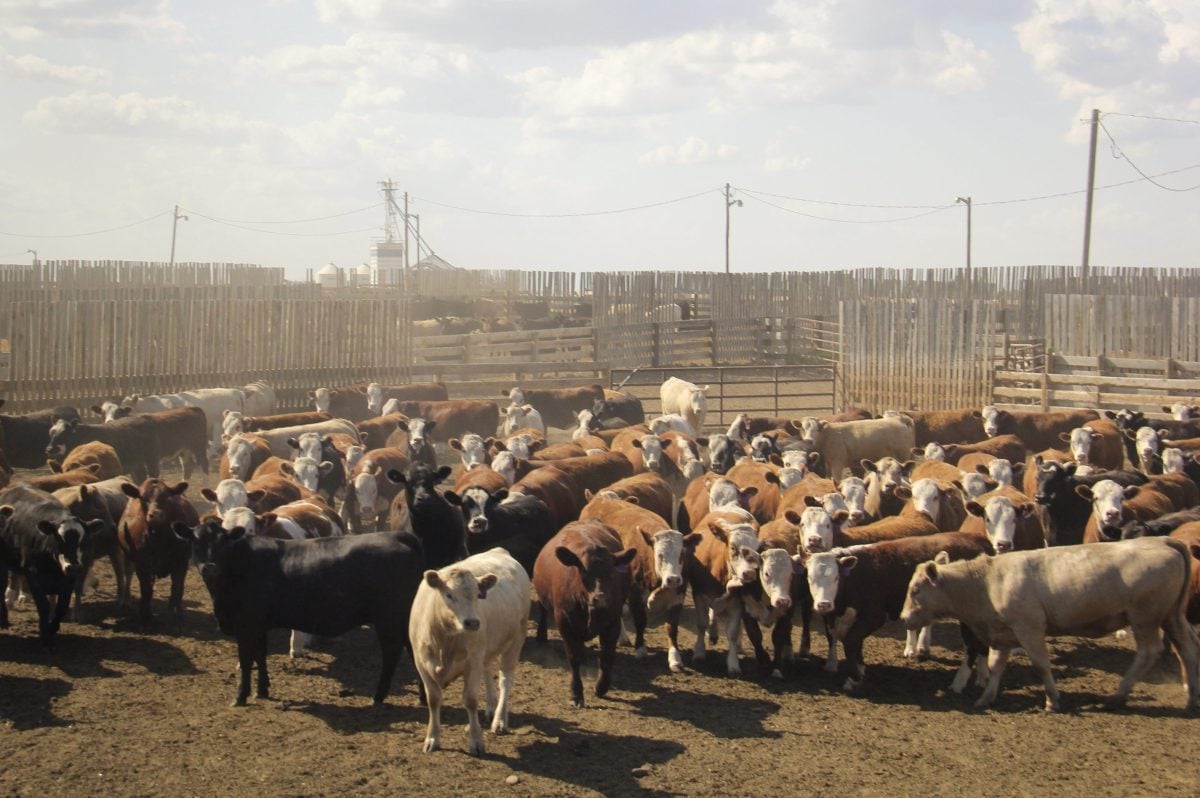Oilseeds were mixed on Wednesday supported by continuing worries over dry weather in Argentina, the world’s No. 3 soybean exporter and No. 2 corn exporter.
But hedge pressure related to increased farmer deliveries caused deferred contacts to fall.
The most traded March canola contract settled at $525.60 per tonne, down $1.10. January is in delivery mode. It closed at $520.60, up $1.40.
• Forecasters say Argentina will remain hot and dry for the rest of the week. The weather has a potential impact on yields but also it might discourage farmers from completing their seeding plans and so acreage might drop
Read Also

U.S. livestock: Hog futures hit contract highs on shock herd decline
Chicago | Reuters – Lean hog futures stormed to contract highs at the Chicago Mercantile Exchange on Friday as smaller-than-expected…
Brokerage house R.J. O’Brien on Wednesday cut its forecast for Argentine corn production by five to seven million tonnes and soybean production by three million tonnes.
The trade will watch to see if USDA shaves its forecast for Argentine and Brazilian production in its next report Jan. 12.
Agrimoney.com reported today that the drought in Argentina is so far not as bad as in 2008-09 when weather problems cut corn production by about a quarter and soybean production by one third.
• The U.S. Agriculture Department’s National Agricultural Statistics Service said late on Monday that hard red winter wheat in Kansas was rated 53 percent good to excellent, up from 47 percent at the end of November. Moisture has improved greatly in the southern plains in the past few months.
• Lackluster reaction to a German government bond issue caused currency traders to worry that a France bond issue next week might prove disappointing and lead to bond rating agencies downgrading that country’s credit rating. The euro fell against the U.S. dollar.
• The dollar has climbed against other currencies as well. It is up substantially against the Indian rupee, making pulse imports more costly for that country.
Winnipeg (per tonne)
Canola Jan 12 $520.60, up $1.40 (+0.27%)
Canola Mar 12 $525.60, down $1.10 (-0.21%)
Canola May 12 $528.80, down $1.90 (-0.36%)
Canola Nov 12 $510.20, down $1.40 (-0.27%)
The previous trading day’s best basis was $12 per tonne off the January contract, said the ICE Futures Canada exchange in Winnipeg.
The January contract’s 14-day Relative Strength Index was 59.
Western Barley Mar 12 $217, unchanged
Chicago (per bushel)
Soybeans Jan 12 $12.215, up 3.25 cents (+0.27%)
Soybeans Mar 12 $12.30, up 2.5 (+0.20%)
Soybeans Nov 12 $12.1925, up 0.25 (+0.02%)
Corn Mar 12 $6.585, unchanged
Corn Dec 12 $5.8975, down 0.25 (-0.04%)
Oats Mar 12 $2.93, down 5.5 (-1.84%)
Oats May 12 $2.98, down 5.25 (-1.73%)
Minneapolis (per bushel)
Spring Wheat Mar 12 $8.39, down 5.25 cents (-0.62%)
Spring Wheat May 12 $8.30, up 1.75 (+0.21%)
Spring Wheat Dec 12 $8.025, down 3.0 (-0.37%)
Nearby light crude oil in New York rose 26 cents to settle at $103.22 a barrel.
The Canadian dollar at noon was 98.68 cents US, down from 99.11 the previous trading day. The U.S. dollar at noon was $1.0135 Cdn.
In a preliminary tally, the Toronto Stock Exchange composite closed up 18.04 points, or 0.15 percent, at 12,226.47.
The Standard and Poor’s 500 was up 0.24 points, or 0.02 percent, at 1,277.30.















